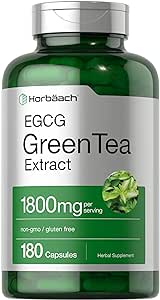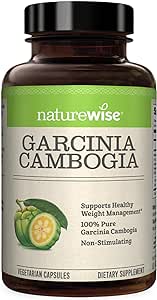
The 7 Best Supplements for Weight Loss: An Informative Guide

Losing weight can be a challenging journey, and finding the right supplements to aid in this process can be equally daunting. This article reviews the 7 best supplements for weight loss, providing an informative guide for consumers looking to make informed choices.
Remember, it’s crucial to consult with a healthcare professional before starting any supplement regimen.
Tips for Choosing Supplements for Weight Loss
When you’re navigating the world of weight loss supplements, it’s important to make informed decisions. Here are some tips to help you choose the right supplements for your weight loss journey:
Understand Your Needs
- Assess Your Health: Consult a healthcare professional to understand your specific health needs and any potential risks associated with taking supplements.
- Identify Your Goals: Are you looking for appetite suppression, metabolism boost, or nutritional support? Knowing your goals can help narrow down your options.
Research Thoroughly
- Look for Scientific Evidence: Choose supplements backed by scientific research. Check for clinical studies that demonstrate the efficacy and safety of the supplement.
- Read Labels Carefully: Understand the ingredients and their dosages. Avoid products with excessive amounts of fillers, additives, or unproven ingredients.
Quality and Brand Reputation
- Choose Reputable Brands: Opt for brands that have a good reputation for quality and transparency. Look for companies that provide detailed information about their sourcing and manufacturing processes.
- Check for Certifications: Look for products that have been certified by third-party organizations like NSF or USP. This indicates that the product meets certain standards of quality and purity.
Be Wary of Outlandish Claims
- Avoid Unrealistic Promises: Supplements that claim to offer quick fixes or dramatic results are often too good to be true. Effective weight loss usually requires time and consistent effort.
- Be Skeptical of “Miracle” Ingredients: Supplements that tout a single ingredient as a miraculous solution to weight loss should be approached with caution.
Consider Your Diet and Lifestyle
- Complement, Not Replace: Supplements should complement your diet and exercise routine, not replace them. Ensure you’re following a healthy, balanced diet and staying active.
- Allergies and Dietary Restrictions: Be mindful of any allergies or dietary restrictions you might have. Some supplements may contain allergens or ingredients that don’t align with your dietary preferences.
Understand Potential Side Effects
- Know the Side Effects: Be aware of the potential side effects of any supplement you consider taking. Some may interact with medications or have undesirable effects on your health.
- Monitor Your Body’s Response: Pay attention to how your body reacts after you start taking a supplement. Discontinue use and consult a healthcare provider if you experience adverse effects.
Stay Informed and Updated
- Keep Up with Research: The field of dietary supplements is always evolving. Stay informed about the latest research and updates regarding the effectiveness and safety of weight loss supplements.
Consult Healthcare Professionals
- Seek Professional Advice: Before starting any supplement, it’s crucial to talk to a healthcare professional, especially if you have underlying health conditions or are taking medications.
7 Best Supplements for Weight Loss
1. Green Tea Extract

Green tea extract is renowned for its fat-burning properties. It contains catechins, a type of antioxidant, and caffeine, which work together to enhance fat burning and improve exercise performance.
| Pros | Cons |
|---|---|
| Enhances metabolism | May cause insomnia |
| Rich in antioxidants | Not suitable for caffeine-sensitive individuals |
2. Conjugated Linoleic Acid (CLA)

CLA is a type of fatty acid found in meat and dairy products. It is popular for its role in reducing body fat and increasing lean muscle mass.
| Pros | Cons |
|---|---|
| Reduces body fat | May cause digestive issues |
| Increases muscle mass | Long-term effects are unclear |
3. Glucomannan

This dietary fiber is extracted from the roots of the elephant yam. It absorbs water and becomes gel-like, promoting a feeling of fullness which can reduce overall calorie intake.
| Pros | Cons |
|---|---|
| Promotes satiety | May cause bloating |
| Lowers calorie intake | Can interfere with medications |
4. Probiotics

Probiotics are live bacteria and yeasts that are good for your gut health. Certain strains of probiotics in the Lactobacillus family can aid in weight loss.
| Pros | Cons |
|---|---|
| Improves gut health | Effects vary among individuals |
| May aid in weight loss | Requires consistent usage |
5. Caffeine

Caffeine is a stimulant found in coffee, tea, and certain weight loss supplements. It can boost metabolism and increase fat burning in the short term.
| Pros | Cons |
|---|---|
| Increases energy levels | May cause anxiety |
| Boosts metabolism | Can lead to dependence |
6. Raspberry Ketones

A substance found in raspberries, it’s claimed to increase fat breakdown and release the hormone adiponectin, which is believed to be related to weight loss.
| Pros | Cons |
|---|---|
| Enhances fat breakdown | Limited human studies |
| May regulate metabolism | Potential for side effects |
7. Garcinia Cambogia Extract

Extracted from a small, green fruit, it contains hydroxycitric acid, which is marketed as an appetite suppressant.
| Pros | Cons |
|---|---|
| Suppresses appetite | May cause liver problems |
| Can block fat production | Effectiveness is debated |
Important Note: Supplements are not magic solutions for weight loss. They should complement a healthy diet and regular exercise. Always consult with a healthcare provider before starting any new supplement, especially if you have underlying health conditions or are taking other medications.
Conclusion
While each of these supplements has potential benefits for weight loss, their effectiveness can vary greatly from person to person. It’s essential to approach weight loss with a holistic mindset, focusing on healthy eating and regular physical activity as primary strategies, and considering supplements as a secondary aid. Remember, the key to successful weight loss is a long-term commitment to a healthier lifestyle.
Frequently Asked Questions About Supplements for Weight Loss
When it comes to weight loss supplements, there are many questions that consumers commonly have. Below are some of the most frequently asked questions to help guide your understanding and decisions regarding these supplements.
What are weight loss supplements and how do they work?
Weight loss supplements are products designed to aid in weight loss. They work in various ways, such as reducing appetite, increasing metabolism, or blocking the absorption of fat. The effectiveness of these supplements can vary based on their ingredients and the individual’s body.
Can weight loss supplements replace a healthy diet and exercise?
No, weight loss supplements cannot replace a healthy diet and exercise. They are intended to supplement these efforts, not act as a substitute. A balanced diet and regular physical activity are the most effective and sustainable methods for losing weight.
Are weight loss supplements safe?
The safety of weight loss supplements depends on the ingredients, the quality of the product, and the individual’s health condition. Some supplements may have side effects or interact with medications. It’s important to consult with a healthcare professional before starting any supplement.
How do I choose the right weight loss supplement for me?
Choosing the right supplement involves researching the product, understanding its ingredients and potential side effects, and considering your own health needs and goals. Look for supplements with scientific backing and choose reputable brands. Always consult with a healthcare professional before starting a new supplement.
Do natural weight loss supplements work?
Natural weight loss supplements can be effective for some people, but their efficacy varies. Just because a supplement is labeled as “natural” does not guarantee its safety or effectiveness. It’s important to research and consult healthcare professionals regarding natural supplements.
Can weight loss supplements cause side effects?
Yes, some weight loss supplements can cause side effects, ranging from mild to severe. Common side effects include digestive issues, increased heart rate, insomnia, and anxiety. The risk of side effects depends on the supplement’s ingredients and the individual’s health.
How long should I take weight loss supplements?
The duration for taking weight loss supplements varies based on the product and individual health goals. Some supplements are intended for short-term use, while others can be taken longer. Always follow the manufacturer’s guidelines and consult with a healthcare professional.
Can everyone use weight loss supplements?
Not everyone should use weight loss supplements. People with certain health conditions, pregnant or breastfeeding women, and individuals taking certain medications should avoid or be cautious with these supplements. It’s essential to consult with a healthcare provider before starting any supplement.
Are there any clinically proven weight loss supplements?
There are some weight loss supplements with clinical evidence supporting their effectiveness, but this varies widely. It’s important to research and understand the scientific support behind any supplement you consider taking.
How can I ensure the quality of a weight loss supplement?
To ensure the quality of a weight loss supplement, look for products that have been tested by third-party organizations like NSF or USP. Choose reputable brands and read labels carefully to understand the ingredients and manufacturing practices.






